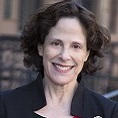 Easy to Say and Hard to Do Well
Easy to Say and Hard to Do Well
by Ronna D. Brown, President, Philanthropy New York
Last month we had the pleasure of having Phil Buchanan, President of the Center for Effective Philanthropy, speak to our members about foundation effectiveness. Stressing the importance of a mission-focused strategy, his remarks focused on how to ensure effectiveness while the landscape around you is constantly changing. (See his full remarks on PhilTV here.)
Not surprisingly, Phil focused on how to define effectiveness – when do you know your foundation’s work is making a difference and how do you get there? Here are my takeaways (and these are not attributable or endorsed by Phil!):
Maintaining Focus – Daily events, whether in this country or around the world, make it easy to want to go in a new direction or add a new issue to the foundation’s portfolio. Yet, the importance of maintaining focus on your foundation’s mission is critical to achieving lasting positive impact in a specific area. That does not mean that your strategy in any given area should not be re-examined and refined based on what’s happening in the world. But that is very different from funding in a new area with each new headline.
Adaptability – And, still, knowing when and how to refine and even re-define your goal can be appropriate in order to ensure your foundation’s work is neither static nor out of touch. Missions do evolve over time as our understanding of issues deepens, so there should always be flexibility to adapt your strategy and even goal based on what’s happening around you.
Expertise – Back to that mission --- Every foundation cannot cover every issue. Using the expertise developed in a specific areas gives strength to the foundation’s thinking. Focusing on what is unique to your foundation and using those strengths to contribute effectively to issues goes a long way in creating lasting impact. Most importantly, the real experts for many types of issues are often the grantees and the very people those grantees are focused on serving. It is in the Foundation’s interest in meeting its mission to figure out how to incorporate that knowledge. .
Shared Strategy – Collaboration is crucial. Learning how to meaningfully bring community knowledge into your work is essential. Finding partners with whom you can share goals and develop long term trusted relationships will provide the base for creating collaborations that work. Collaboration is enormously challenging but incredibly essential.
Paying close attention to how issues are evolving and developing fresh concepts to apply as they do is essential and these are all ways that will support a natural evolution in an area, but still let a foundation stay true to its mission.
We thank Phil again for a great conversation. We welcome your thoughts and reactions to what makes for an effective philanthropic strategy. Let us know what you think and who else you would like to hear from in the coming months.
